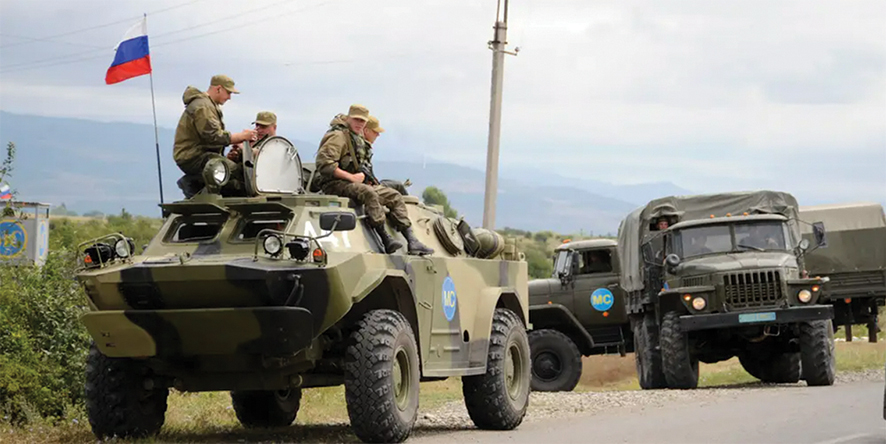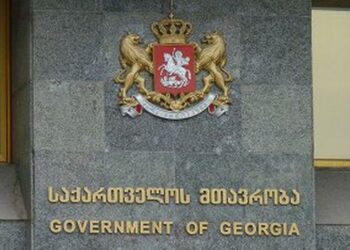Following the ceasefire agreement at the end of the 2008 August War, Russo-Georgian relations have steadily improved. Trade and tourism have returned, largely replacing the cold glares of border guards at the Administrative Border Line, or ABL as it is officially referred to. Yet, despite this warming of relations and moves from the ruling party to cozy up to the Kremlin, the prospects of a long-lasting peace remain elusive.
The reasons for this run deeper than the actions of Georgian Dream, or any recent events. While the evidence of Russian intelligence activities in Georgia, the ongoing war in Ukraine, and increasing concern over the actions of the government by the West all seem to paint a gloomy picture for the near future, global trends point to a decline in peace treaties overall. Since the mid-twentieth century, the classic peace treaty has been a dying breed.
A study published by International Organization, a geopolitical affairs journal, states that “since approximately 1950, the rate at which interstate wars have ended with a formal peace treaty has declined dramatically.” Succinctly put, the study finds that this is due to the nature of modern warfare and the law of war. According to the report, “states today prefer to avoid admitting to a state of war and risk placing their leaders and soldiers at risk of punishment for any violations of the law of war.”
While many states have avoided the legal classification of war for their overseas forays, this is most evident in the Kremlin’s terminology surrounding its 2022 invasion of Ukraine. Labeling it a “special military operation” has nominally avoided all the legal implications of a full scale war, as well as potentially absolving the government of its transgressions in the eyes of the citizenry. Additionally, and potentially most importantly, it does not require a peace treaty for it to cease or enter a “frozen conflict” stage, and leaves the door open for further offensive operations.
The use of the “special military operation” moniker is not the first time Russia has avoided the war label. Many will likely recall the title of Russia’s invasion of Georgia; a peace enforcement operation. Similarly, it attempts to shy away from the liability of its actions against the country as well as maintain that there could be, if needed, follow up operations. All in the name of “peace”.

All of this points to the indication that in the future there is little likelihood that the Kremlin is willing to settle with its own territorial holdings and allow its former vassal states to flourish. With invasion and outside influence seen as the largest threat to the Russian nation, keeping the buffer states on its frontier destabilized works to its benefit. In Georgia’s case, it seeks to keep the nation pinned down, with European Union integration within view, but just out of reach.
The Kremlin is aware that the people of Georgia want EU and NATO membership, and will benefit from this status, but that the actions and words of its government are perpendicular with European values. As long as this divide is present, the country can’t unify and move Westward at rapid speed. Additionally, it forces the nation to rely on Russia economically and diplomatically, particularly with regard to its largest bargaining chips- Abkhazia and South Ossetia.
To mirror this effect, many have noted that prospects for peace between Ukraine and Russia are unlikely or impossible. “I believe that negotiations for peace are currently impossible,” UN Secretary General António Guterres noted. He added that, “what we are doing, as far as possible, is a dialogue with both parties to solve specific problems.” However, according to leaked documents from United States intelligence, the UN, among others, had been too lenient on the Kremlin and this has been “undermining broader efforts to hold Moscow accountable for its actions in Ukraine.”
This lackluster performance is well known to Georgians, who have seen a less than stellar activity from the UN, the EUMM, and others when it concerns Russia. Russians and South Ossetians continue to abuse villagers along the line of occupation, the Kremlin’s intelligence assets routinely operate in and out of Tbilisi, and the most senior government officials continue to spout Moscow’s talking points, even gaining praise from the most ardent supporters of Russian expansionist doctrine.
It is imperative that this stops. Georgians routinely vote in a multitude of polls in favor of European integration, clearly outlining the desire of the people. The government, acting on behalf and with the consent of the people, is obliged to act at the will of the people. However, it is highly unlikely the Kremlin will ever allow this to come to fruition, using all of its overt and covert tools to ensure the country stays tethered to its will.
This doctrine of manipulation makes it impossible to ratify a long-lasting peace that can bring Russo-Georgian relations to normal levels. Unless leadership in Moscow or Tbilisi makes changes, or themselves change, this continual cycle of abuse by Russia and internal strife in Georgia will continue. Real peace with Russia is impossible, but the ability to shake off the shackles of the Kremlin is well within reach, particularly for voters in the coming year.
By Michael Godwin














